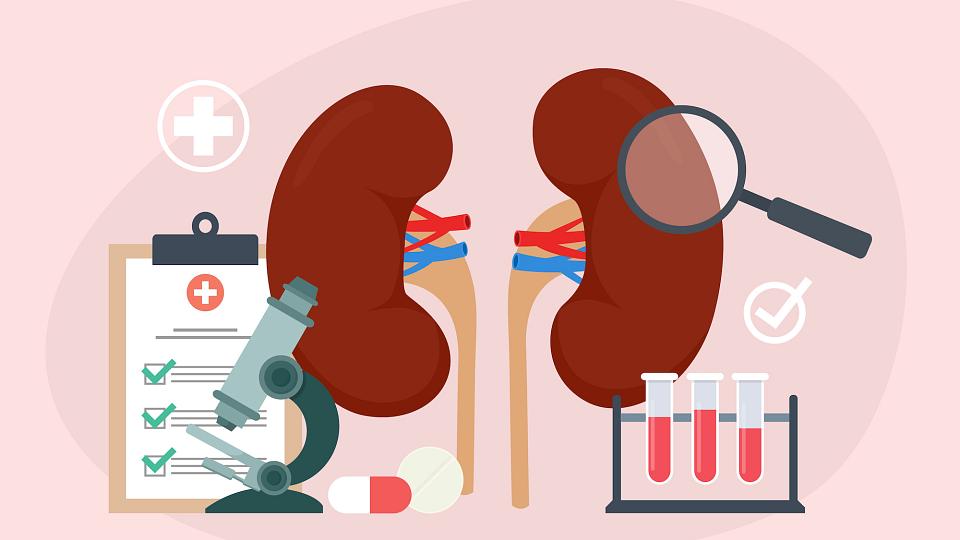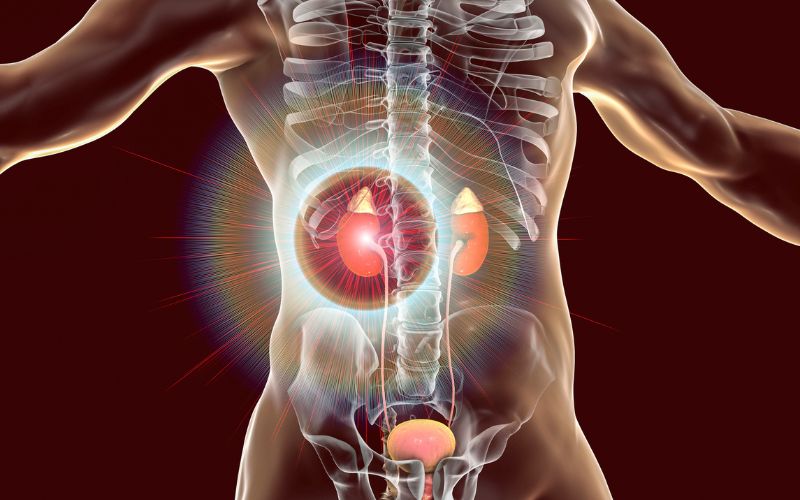Lupus Nephritis Kidney Treatment in Haryana | Best Hospital in Rewari
Lupus nephritis develops when the immune system unintentionally targets healthy tissues, swelling the kidneys and decreasing kidney function. It is important to manage lupus nephritis, because, if unchecked, it can cause chronic kidney damage and advance to end-stage renal disease.
It can be healed withproper nephrology treatment with appropriate diagnosis and good doctors.
What is lupus nephritis?
The condition known as lupus nephritis happens when the body's defence mechanism, the immune system, unintentionally attacks the kidneys. Nephrologist from a Hospital in Haryana explains it as a symptom of the autoimmune disease systemic lupus erythematosus (SLE). The immune system attacks the kidneys which results in inflammation that causes kidney damage and reduced function. The kidneys serve as a very essential organ used for filtering waste and extra fluid from the circulation. The negatve affect on normal kidney function that results from lupus nephritis can lead to serious kidney problems if left untreated.
What are the symptoms of lupus nephritis?
Kidney Patients from this disease experience following mentioned symptoms of lupus nephritis that can appear in several ways:
-
High blood pressure: Lupus nephritis causes high blood pressure, you have to monitor it regularly and it needs to be taken care of.
-
Swelling: Also referred to as edema, swelling is frequently brought on by fluid retention and affects the legs, ankles, and feet.
-
Urinary Cycle: You will get variations in the colour of your urine as well as the frequency of your urination also gets affected, may increase or decrease. You might also experience blood in the urine.
-
Fatigue and weight gain: You gain weight because of the fluid that your body is unable to eliminate. Being excessively weary or exhausted is consequential symptom that is frequently linked to the body's reaction to kidney disease.
Lupus Nephritis Treatment in Haryana
To reduce inflammation, and maintain kidney function, lupus nephritis is usually treated with a mix of medicines and habitual changes suggested by the doctors at SS Kidney Hospital, Haryana.
Treatment is administered by a nephrologist, a specialist in kidneys. Hospitalization is necessary for the treatment, although individuals with kidney failure are often already admitted.
The duration of the hospital stay is based upon the root cause of the condition and the subsequent recovery process.
-
Doctors prescribe a special diet chart. Dietary adjustments involve restricting protein and salt consumption to enhance kidney function.
-
Medicines for maintaining good blood pressure, like angiotensin-converting enzyme (ACE) inhibitors and angiotensin II receptor blockers (ARBs), not only regulate blood pressure but also prevent the leakage of protein from the kidneys into the urine.
-
Intensive lupus nephritis demands those medicines that inhibit or decelerate the immune system's assault on the healthy cells of the kidney.
-
Dialysis involves removing fluid and waste from the body, ensuring the proper balance of minerals in the blood, and regulating blood pressure through the filtration of blood using a machine. A kidney transplant is performed, involving the placement of a new kidney from either a living or deceased donor.
However, a patient might have severe lupus nephritis that can only be treated with high-dosage medicines.
Stages of lupus nephritis
Lupus nephritis has 6 stages. The severity of the disease increases with its stage.
-
Stage 1: Mild kidney damage with no apparent additional signs or symptoms.
-
Stage 2: Some observable impairment to the kidneys. Blood and protein detected in the urine
-
Stage 3: Blood vessels in the kidney experience over 50% damage. Higher levels of blood or protein in the urine. Potential occurrence of high blood pressure..
-
Stage 4: Damage affecting over half of the blood vessels within the kidney. Presence of blood or protein in the urine. Potential development of high blood pressure. Possible necessity for dialysis due to kidney dysfunction or complete cessation of function.
-
Stage 5: Thickening of important segments of the kidney. Primarily protein in the urine. Potential development of high blood pressure. Potential risk of kidney failure.
-
Stage 6: Chronic and irreversible damage to over 90% of the renal blood vessels. Presence of protein in the urine. Potential development of high blood pressure. Usually necessitates dialysis or a renal transplant.
Diagnosis of lupus nephritis
To identify lupus nephritis, a doctor may conduct a physical diagnosis examination and review the patient's medical history, in addition to performing the subsequent tests.
-
Blood and urine tests: These include the standard tests and involve the analysis of urine collected over 24 hours. These assessments gauge the efficiency of kidney function.
-
Kidney biopsy: A small portion of kidney tissue is extracted and forwarded to a laboratory. This procedure serves as a diagnostic measure for lupus nephritis, providing insights into the severity of the condition. Multiple biopsies may be conducted over time.
Last Thoughts
SS Kidney Hospital has the most experienced team of nephrology and urology. With the right guidance and treatments, anyone who is diagnosed with lupus nephritis can be recovered.














Request A Callback